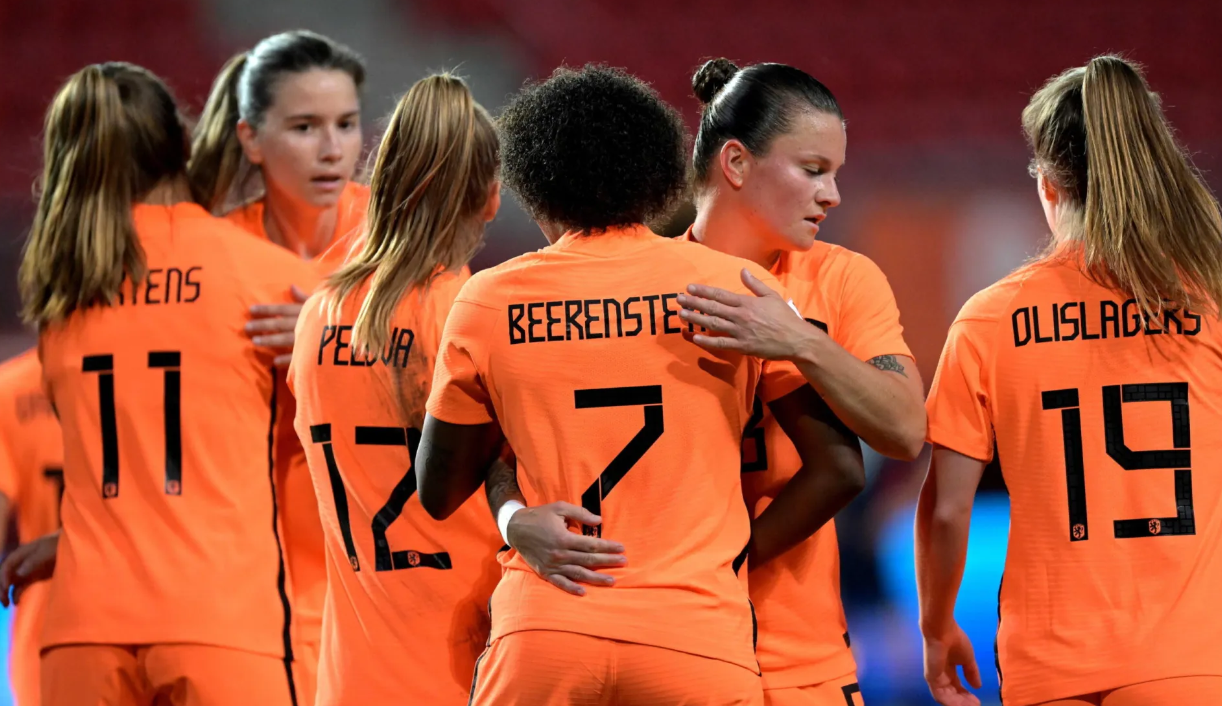
Soncin: "We’re a mature group”
06 July 2025
Friday, April 5, 2024

Given their FIFA ranking (eighth, Italy in 14th) and their record in recent years, the Netherlands come to the Stadio San Vito-Gigi Marulla as the clear favourites to top Group A1 in qualification for EURO 2025. The Oranje, under Andries Jonker who took the role in 2022 after spells as the assistant to Louis van Gaal at Barcelona and Felix Magath at Bayern Munich, made it to the Nationals League Finals after qualifying from a group that included England, who they pipped to the post on goal difference. They then finished in fourth place in the competition, losing to Spain in the semi-finals and then Germany in the third-place playoff. Before the arrival of the Amsterdam native, the Netherlands were crowned champions of Europe in 2017 and finished second at the 2019 World Cup, having beaten Italy in the quarters en route to the final.

The Oranje’s squad is stocked with talent playing at Europe’s top clubs: defenders Dominique Janssen (Wolfsburg) and Caitlin Dijkstra (Manchester City), midfielders Sherida Spitse (Ajax), Daniëlle van de Donk (Lyon), Jackie Groenen (Paris Saint-Germain) and the youngsters Damaris Egurrola (Lyon) and Victoria Pelova (Arsenal). Star player Vivianne Miedema has, however, not been called up due to injury; she has scored 95 goals in 115 appearances for her country, including four in three matches against Italy. Without the Arsenal striker, Jonker will turn to Juventus forward Lineth Beerensteyn, who was their top scorer in the Nations League with six goals in eight games, and Barcelona’s young talent Esmee Brugts, who has already scored eight goals in international football.
PREVIOUS MEETINGS. The game in Cosenza will be the 16th meeting between the two teams. Italy currently lead in the head-to-head record with nine wins to the Oranje’s four. The Azzurre were victorious in the most recent meeting (a friendly in Ferrara with Cristiana Girelli winning it from the spot), their first win in 16 years following one draw and five defeats.
The Oranje had a hand in one of the biggest disappointments in the history of the Italy Women’s National Team. On 27 November 2014, at the Stadio Bentegodi in Verona, it was the second leg of the play-off to reach the 2025 FIFA Women’s World Cup in Canada. A win was needed to reach the World Cup for the first time since the tournament in the USA in 1999.
15 years on, that afternoon in Verona seemed like the perfect opportunity. In the first leg, Italy held the Oranje to a 1-1 draw in The Hague, with Melania Gabbiadini having opened the scoring for the Azzurre. Meanwhile, the FIGC was working on developing professionalism in the women’s game and the squad was comprised of a good mix of youth (Laura Giuliani and Cecilia Salvai ‘93, Martina Rosucci ’92, Cristiana Girelli ’90 and Sara Gama ’89) and experience (Patrizia Panico ’75 the only remaining member of the team that made the World Cup in 1999, Roberta D’Adda ‘81, Paola Brumana ’82, Alessia Tuttino ‘83, Elisa Camporese ‘84, Raffaella Manieri ‘86, Marta Carissimi ‘87). Antonio Cabrini had taken charge of the team two years earlier with the aim of returning Italy to the biggest stage. Nothing was being left to chance: then newly-elected FIGC President Carlo Tavecchio was in the stands, as was the head coach of the Men’s National Team, Antonio Conte. 5,000 people came to the stadium to cheer on the Azzurre.
But nobody had taken into account a talented generation of young Dutch footballers, who were destined from that day forth to make it big. And certainly, nobody counted on the young talent Vivianne Miedema, who was back then a promising 19-year-old who had just led Netherlands U19 to the European title before joining Bayern Munich. Miedema, who scored the equaliser in the first leg, hit the back of the net twice in the first half of the return fixture, putting paid to the Azzurre’s dream to play in the World Cup for the first time since the futile win in Boston in 1999 (2-0 vs Mexico, but failed to make it out of the group) and extending the wait to 20 years, a wait that finally came to an end four years later.